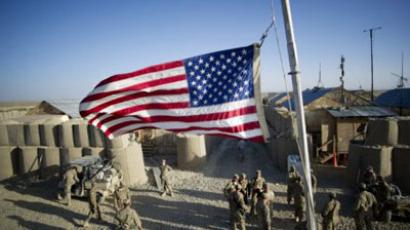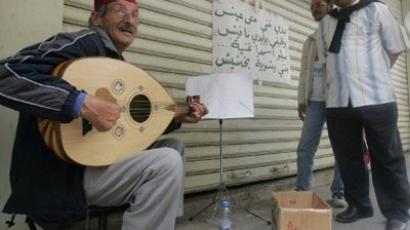Tunisia: a year on, slow-burn revolt lingers
It is the first anniversary of Tunisia's street protests, which saw the regime toppled and elections held. But for some, there is little to show for the effort.
RT’s Irina Galushko has traveled to Tunisia’s Sidi Bouzid – the site of the first clashes and a catalyst for other protests in the region. It is also the hometown of Mohamed Bouazizi, who a year ago set himself on fire to protest against the authorities in Tunisia – unleashing public fury over corruption and poverty, which led to the ousting of President Ben Ali. A wave of revolt spread to other countries, and the Arab Spring was born.Today, a monument stands to his sacrifice in his hometown of Sidi Bouzid.There is widespread belief, however, that the changes in Tunisia end there, where they started.“We have asked for very few things: to upgrade the school, to aid families with disabled children, and some jobs,” Khalil, a relative of Mohamed Bouazizi, told RT.”But no one wants to listen to us. The people haven't gotten anything! Those who came from abroad have reaped all benefits. They are all in the new government, but the simple folk are left with nothing.”The Tunisian Revolution was led by young people, demanding freedom of speech, and greater representation. But the voice of youth, according to some, has been silenced.“The new government is comprised of the elderly. That shows what kind of "new" Tunisia we are talking about,” lawyer Leila Ben Debba complained to RT. “The main problem is the political parties, which haven't given a chance to the young people, who gave their lives and blood for the revolution.”The Western Media has hailed the Tunisian revolution as the beginning of a new, democratic chapter in the history of the country and the entire Northern African region. A year has passed and people who live there say very few of the changes they have asked for have actually taken place. “Everything is still as it used to be. The elections have come and gone, and the town hasn’t seen any changes," Abdullah Ameri, a friend of Mohamed Bouazizi told RT. “Unemployment is still the same, if not worse. The only thing that changed – we can now express our opinion, but the revolution's main goals have not been accomplished.”The fervor which sparked a revolution may be on the slow burn for now on. But if the grievances which inspired it remain, so will the people's inspiration to revolt again.














